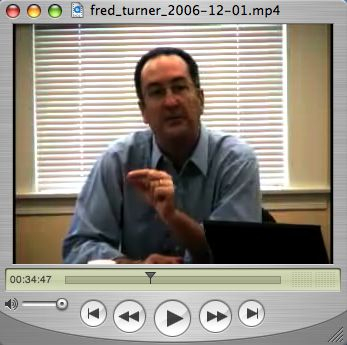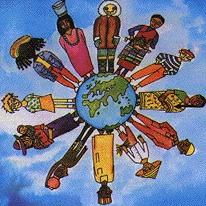
- Blogs (Apr 09, 2020)
- News (May 30, 2023)
- Organizations (Nov 04, 2023)
- People (Nov 03, 2023)
- Projects (Aug 08, 2024)
You can log-in or register for a user account here.

-StewBrand, The First Hackers' Conference, circa 1984
"At some level, the expression does carry the moral judgement that
"Information should be free": the idea that access to information and
knowledge should not necessitate a class war,
that such access is a basic human right,
and, as technology improves, the whole of humanity
should be able to partake in its gifts and services."
- Wikipedia, circa 2006
(All text is available under the terms of
the GNU Free Documentation License)

From MURL Seminar Archive, Stanford, CA
--- circa 2003 ---
From Counterculture To Cyberculture: How The Whole
Earth Catalog Brought Us "Virtual Community."
VIDEO *
--- circa 2005 ---
Where the Counterculture Met the New Economy: Revisiting
the WELL and the Origins of Virtual Community.
--- circa 2006 ---
From Counterculture to Cyberculture: StewBrand, the Whole
Earth Network and the Rise of Digital Utopianism.
INTRO | EXCERPT **
Synchronisticly, Worldchanging: The Book is being made available NOW!

--- circa late 2006 ---
From The Legacy of the Whole Earth Catalog

Stanford University Libraries & Department of Communication
INVITE | VIDEO
"Leading a Double Life" 10/25/2006
From the Berkman Center at Harvard University.
Their mission is to explore and understand cyberspace,
its development, dynamics, norms, standards,
and need or lack thereof for laws and sanctions.
They are a research center, premised on the observation
that what we seek to learn is not already recorded.
Their method is to build out into cyberspace,
record data as we go, self-study, and publish.
Their mode is entrepreneurial nonprofit.
Presents:
From Counterculture to Cyberculture:
The Rise of Digital Utopianism
MP3 AUDIO | MP4 VIDEO

By Fred Turner [FredTurner]
Department of Communication, Stanford University
--- circa 2007 ---
University of California at Berkeley, School of Information
Howard Rheingold/Qiang Xiao
Participatory Media / Collective Action
Part I: Participatory Media and Theory of Networks
Part II: Communication, Media and Cyberpower
Part III: Networked Activism
"...Instructors and students will discuss finalizing the wiki
we have contructed over the previous ten weeks and publishing it
as a public resource on collective action and participatory media.
We'll discuss how to maintain and grow this resource in the future.
We will speculate about future possibilities, given the technologies,
social forces, and cultural trends discussed during previous weeks,
and about ways in which media can be used to strengthen democracy,
advance human freedom and dignity, and enable sustainable development."
*NEW*
The National Autonomous University of Mexico
Cyberculture and Cybercultur@</b>

"emphasize three directions of meaning
from the elements that compose the neologism:
the Greek prefix “Κψβερ” (cyber),
the Latin word “cultur”,
and I will take analogically
the spiral form of the sign “@”...
“cybercultur@”
- Jorge A. González, Professor, Latin American Media
Universidad Nacional Autónoma de México
FlowTV, Vol.5, April 20, 2007
* Video is from The Stanford Center for Professional Development (SCPD) fills the career-long educational needs of today's best talent in engineering, science, and technology, regardless of time or distance.
** Introduction and Excerpt from the University of Chicago Press
*NEW* from tags at MediaBerkman: Berkman Center for Internet & Society Podcast [Harvard]
| From CounterCulture to CyberCulture to WorldChanging to Customized Courses... news @ infinitum [[UPDATED]] | Log-in or register a new user account | 0 Comments | |
|
| |
| Comments are statements made by the person that posted them. They do not necessarily represent the opinions of the site editor. |
- Apache HTTP Server
- Audacity [audio]
- Blender [3D suite]
- EMS Resources
- Firefox [browser]
- FreeCAD [modeler]
- GIMP.org [graphics]
- Inkscape [vector]
- LibreOffice
- Linux Kernel
- Mattermost [team]
- MediaWiki
- Moodle [LMS]
- Mozilla Hubs
- NetNewsWire
- Nightingale [music]
- OBS Studio
- QGIS [Geo-Info-Sys]
- Thunderbird [email]
- Thunderbird Lightning
- VLC [VideoLan]
- Wordpress [CMS]
- xiph Vorbis [ogg]
- XMPP [comm]
INTERNET ARCHIVE
WIKIMEDIA FOUNDATION
OPEN COURSEWARE
- Archive Educational
- BerkeleyX
- UCambridgeX
- ColumbiaX
- Commons
- EdX
- DelftX
- Encyclopedia of Life
- HarvardX
- Harvard Online
- Harvard U
- CancerCommons
- Identity Mashup
- LSEX
- Merlot
- MIT OpenCourseware
- MITX
- Neuropathy Commons
- Northwestern U
- OpenCulture
- Open Edu Global
- Open Journal Systems
- OpenStax at Rice
- Open U OER
- Oregon State U
- SchoolForge
- Stanford U
- Tree of Life (glossary)
- U of Michigan
- UTAustinX
- U of Oxford
- Wikiversity
- Yale Open Courses
• Deep Learning
• Machine Learning
• Reinforcement Learning
• Artificial Intelligence
OPEN FORGES
OPEN METAVERSE
• Blender [3D Suite]
• Firestorm Viewer
• GitHub
• Libre3D
• Metaverse Project
• Mozilla Hubs
• NIH 3D Print Exchange
• OpenKinect
• OpenNI2
• OpenSim
• OpenSourceVR
• OpenWonderland
• PlayCanvas
• Sirikata
• Sketchfab
• Thingiverse
• 3D Warehouse
• Unity 3D
• WebGL (Moz)
• WebXR API (Moz)
• Yeggi
• YouMagine
- Arxiv at Cornell
- Arxiv Computer Research
- Arxiv Mathematics
- Arxiv NonLinear Sciences
- Arxiv Physics
- Arxiv Quantitative Biology
- Berkeley Electronic Press
- Free Legal Resources
- MediArXiv
- Public Library of Science (PLoS)
- PLoS ONE
- PLoS Biology
- PLoS Complex Systems
- PLoS CompBio
- PLoS Genetics
- PLoS Medicine
- Science Commons
- Smithsonian
- Alternative Freedom
- Brothers Chudnovsky
- Century of Self
- Conundrum
- Design-e2
- Digital Nation
- Einstein's Big Idea
- The Elegant Universe
- Evolution
- The Facebook Dilemma
- Fritjof Capra
- Generation Like
- The Grey Video
- Growing Up Online
- How Art Made the World
- In the Age of AI
- Last Child in the Woods?
- Life Incorporated
- Merchants of Cool
- Mirror Neurons
- OurMedia
- OS Media
- The Persuaders
- Plastic Wars
- Present Shock
- RecentChangesCamp06
- Revolution OS
- Who Owns Culture?
- Definition
- MP3 7.2MB
- More A/V
- Stanford Talk
Games- Agility
- Drawing
- OS Games
- Spelling
Media Ecology- Definition
- Tetrad of Effects
Optics- Dymaxion Map
- Hubble Telescope
- James Web Telescope
- Map - Territory
- Op Art
- Virtual Globe
- Visible Earth
Systems Science- 68th Proceedings
- 67th Proceedings
- 66th Proceedings
- 65th Proceedings
- 64th Proceedings
- 63rd Proceedings
- 62nd Proceedings
- 61st Proceedings
- 60th Proceedings
- 59th Proceedings
- 58th Proceedings
- 57th Proceedings
- 56th Proceedings
- 55th Proceedings
- 54th Proceedings
- 53rd Proceedings
- 52nd Proceedings
- 51st Proceedings
- 50th Proceedings
- Retrospective 12
- Retrospective 11
- Retrospective 10
- Retrospective 09
- Retrospective 08
- Retrospective 07
- Retrospective 06






